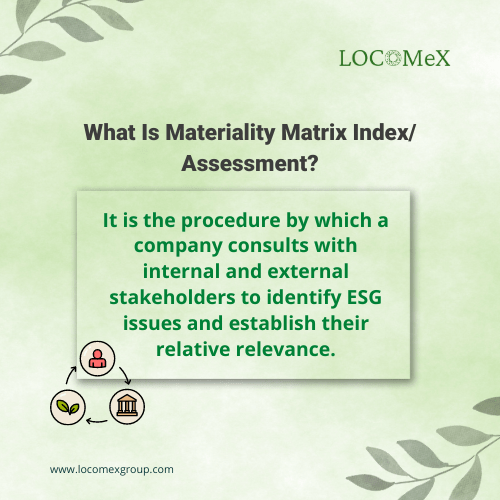315
Today’s ESG environment is fundamentally different from what we’ve seen in the past due to three significant changes in recent years.
First, ESG investing requirements are actively determined and enforced by shareholders. Investors know the important issues and are interested in learning how the businesses in their portfolios address those challenges. Also, due to the readily available information, investors are choosing to invest in proactive businesses that are clearly dedicated to ESG concerns rather than those who do not.
Second, the demand for corporate responsibility and ESG disclosure is higher than ever, and companies must follow through on them before making verbal commitments. Both shareholders and fund managers want to know how ESG efforts made by the companies they invest in are impacting society (often in the form of hard data).
Finally, the previous perception of ESG as a potential risk has changed due to the worldwide momentum surrounding these concerns. It is now viewed as an alpha-generating opportunity for investors who can ask the right questions, connect with high-potential new entrants into the ESG field, and identify forthcoming trends.
On this same note, Governments, buyers, and end customers have higher expectations for sustainable goods and business operations. Because being environmentally friendly is no longer a differentiation but a need for being a respected B2B supplier. So, suppliers must offer verified, current, and easily accessible sustainability data.
We at LOCOMeX help businesses track their sustainability metrics through various tools like ESG Metrics Scoring Tool and Materiality Matrix Index. Before we dive down a little deeper into these tools, let us first understand what does it means when we say sustainability in business and who is a sustainable supplier?
What Is Sustainability In Business?
Sustainability in business refers to conducting business without harming the environment, the local community, or society. It is frequently examined and discussed in terms of Environmental, Social, and Governance (ESG) concerns, which are non-financial performance metrics used to assess a company’s overall long-term viability.
In the context of business-to-business engagements, being sustainable is making sure that:
- Your organization places a priority on reducing its carbon footprint and having a positive influence on the environment.
- Your business adheres to fair labor policies, which include worker health and safety, along with any subcontractors or hired help.
- Operating long-lasting corporate principles and accountability systems.
A sustainable business plan aims to have a positive effect in at least one of these areas.
Importance of Sustainable Suppliers
It’s becoming more and more necessary for the market and the buyers’ sustainability goals and legal compliance to have a sustainable supply chain and to only work with established sustainable suppliers.
Selecting a sustainable supplier to purchase from might be difficult from the customer’s standpoint because data on ESG and sustainability of suppliers is sometimes inconsistent and limited. So, the best technique for buyers to identify which providers satisfy their sustainability standards is one that is quick, precise, and trustworthy.
How LOCOMeX Can Help To Choose Sustainable Suppliers
Suppliers can now publicly post their sustainability ratings using LOCOMeX’s Supplier-based Sustainability Risk Scoring Tool. By using this tool, suppliers can increase their exposure to customers and seize new business prospects as customers look for trading partners who meet the sustainability standards of their value chain.
In addition, suppliers must complete comparable but distinct assessments from many of their buyers because buyers are increasingly asking their suppliers for human rights data. Hence suppliers need to conduct these evaluations frequently and individually for each of their clients. Repeatedly filling out the same information requires suppliers’ resources, resulting in lengthy waiting times for buyers, extending procurement cycles, and supplier onboarding delays.
However, in the present scenario, suppliers on LOCOMeX platform can complete a single set of standard human rights questions and share them proactively with any buyer on the network or with customers who request it from them. Materiality Matrix Index from LOCOMeX helps organizations to track each ESG goal in very much detail to ensure every aspect of the supply chain is covered.
At LOCOMeX, we strive to concentrate on truly important topics. We frequently assess our Materiality Assessment to ensure that we are still concentrating on the problems that are most important to our stakeholders and relevant to the success of our business.

What Is Materiality Matrix Index/Assessment?
It is the procedure by which a company consults with internal and external stakeholders to identify ESG (environmental, social, and governance) issues and establish their relative relevance.
Internal stakeholders include- Sustainability managers across organizations, Board of Directors, Owners, Employees, CEO, Vice-President, etc.
External Stakeholders include- Customers, Employees, and investors.
The abbreviation for ESG metrics, which stands for Environmental, Social, and Governance, denotes several measures and a particular risk area affecting how a firm interacts with its customers, employees, and the environment.
Environmental: The “E” in ESG stands for how businesses manage their environmental impact. This indicator includes a company’s carbon emissions, which are broken down into
- Direct emissions (Scope 1)
- Emissions from the purchase and use of energy (Scope 2)
- Emissions from the supply chain (Scope 3)
Environmental factors that should be considered further include greenhouse gas emissions, waste management, the company’s impact on the quality of the air and water, renewable energy adoption, and direct energy consumption.
Visit LOCOMeX’s only project-based ESG risk scoring tool for scope-3 emission reporting and auditable investment-grade ESG data. With Scope-3 emissions management software from LOCOMeX, businesses can set goals to reduce carbon emissions and offset biodiversity loss.
Social: ESG’s “S” is for “Social,” and it stands for how companies treat their workers and the areas where they do business. Also, the social aspect of ESG covers things like employee involvement, inclusivity, gender diversity, supplier diversity, data protection, supply chain labor standards, human rights, responsible investing, and community relations.
Governance: Governance, the “G” in ESG, refers to a company’s internal control framework, rules, and procedures for preventing and correcting violations. Governance facets include pay, company leadership, board diversity, the audit committee’s makeup, shareholder rights, lobbying, CEO compensation, whistleblower initiatives, ethical behavior, political donations, bribery, and anti-corruption measures.
The importance of each metrics assessment is that your company must decide which ESG issues and subjects can have the biggest impact before embarking on a successful sustainability path. And once the biggest opportunities and risks have been determined, the production, end usage, and disposal of your final product can all be enhanced.
Advantages of Materiality Matrix Index
- The one-to-many data exchange allows suppliers and customers to request, complete, and exchange this information while saving time and resources.
- By making this information easily accessible, suppliers gain the trust of their customers while preparing requests for human rights due diligence.
- Customers who buy from suppliers based on the completed questionnaires may also acquire new business.
- The form only needs to be completed once, and each buyer with whom it has been shared will automatically get an email and an in-app reminder whenever it is updated.
Conclusion
Although completing the index doesn’t result in a certification or assure suppliers of compliance, it makes exchanging human rights due diligence information easier. It also increases suppliers’ credibility with current and potential customers.



